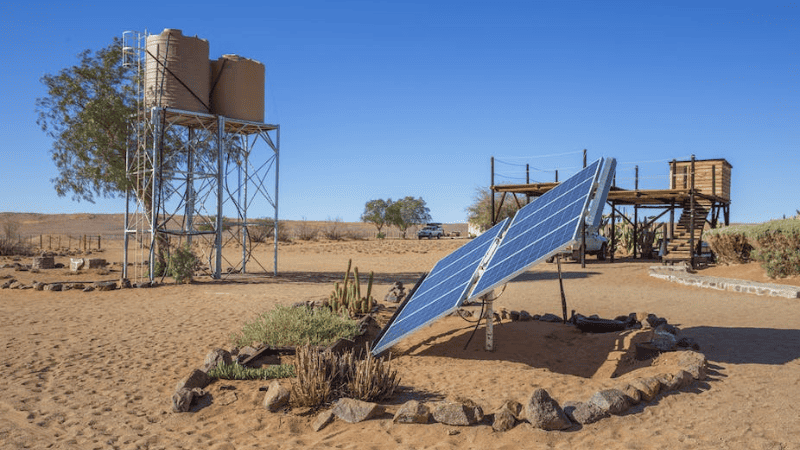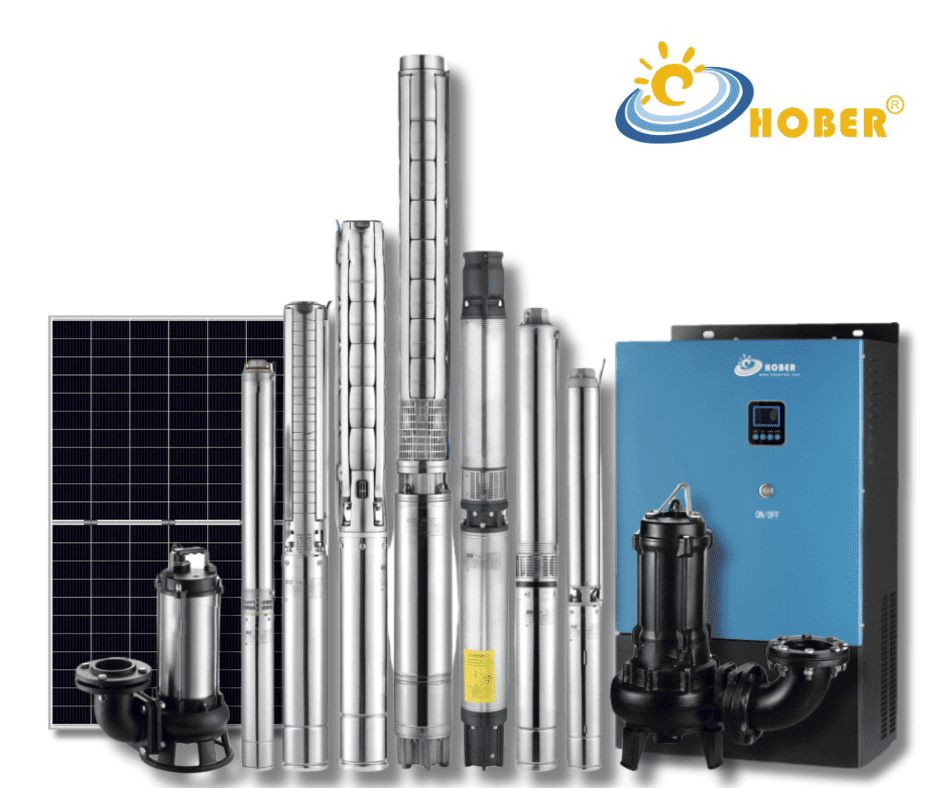Imagine the inconvenience of having inconsistent water supply because your traditional electric pump failed again during a power outage. The frustration is real, especially when you’re running a business that relies on a constant water supply. That’s the Problem.
Switch to solar-powered water pumps. These marvels of engineering are not only reliable but also environmentally friendly and cost-effective in the long run.
If you’re still skeptical, stick around. I’m going to delve into why solar-powered water pumps are worth every penny.

Efficiency Comparison: Solar vs Traditional
When it comes to efficiency, solar water pumps outperform their conventional counterparts, especially in remote areas. Traditional water pumps require a constant supply of electricity or fuel, which isn’t always accessible in isolated locations. Solar pumps, however, rely on sunlight—a free and abundant resource.
Longevity and Durability
Solar water pumps are designed to last. Made with fewer moving parts and robust materials like stainless steel, they are less susceptible to wear and tear, ensuring a longer operational lifespan.
Operational Costs
While the initial investment may be significant, solar water pumps are cost-effective in the long run. They require less maintenance and no fuel, which translates to lower operating costs.
Advantages of Solar Powered Water Pumps
Eco-Friendly
Solar water pumps are a green alternative to fossil fuel-based pumps. They reduce carbon footprint and contribute to a sustainable future.
Energy Savings
Solar pumps convert sunlight directly into energy, reducing electricity consumption and lowering utility bills.
Remote Installation Capability
Solar water pumps can be installed in remote areas without access to grid electricity, making them ideal for various applications like agriculture and livestock watering.

Drawbacks of Solar Powered Water Pumps
Initial Costs
One of the main drawbacks is the initial cost. Solar panels, batteries, and inverters can be expensive, making the upfront investment quite high.
Weather Dependence
Solar pumps are reliant on weather conditions. Cloudy or rainy days can impact their performance, requiring a backup system for continuous operation.
Maintenance
While generally low-maintenance, solar pumps do require some upkeep, such as cleaning the solar panels and checking the electrical connections.

Applications of Solar Water Pumps
Agricultural Irrigation
Solar water pumps are increasingly popular for agricultural irrigation, especially in regions with abundant sunlight.
Livestock Watering
Farmers and ranchers are adopting solar pumps to provide a consistent water supply for their livestock.
Residential Use
Homeowners are also turning to solar pumps for applications like garden irrigation and water features.
Installation Essentials
Solar Panels
Choosing the right solar panels is crucial for optimal performance.
Water Storage
Water Storage for use during cloudy days.
Inverter
An inverter converts the DC power from the solar panels to AC power for the pump.
Government Subsidies and Grants
Federal Programs
Various federal initiatives offer subsidies and grants to encourage the adoption of solar water pumps.
State Programs
Many states have their own programs offering financial incentives for solar pump installations.
Case Studies of Successful Implementations
Developing Countries
In developing countries, solar pumps are transforming agricultural practices, boosting productivity and sustainability.
Off-Grid Locations
Solar pumps have been successfully implemented in off-grid locations, providing reliable water supply where traditional pumps failed.
Market Trends and Future Outlook
Technological Advances
Innovative technologies like IoT are set to revolutionize the solar pump industry.
Market Growth
With growing awareness and technological advancements, the market for solar water pumps is expected to soar in the coming years.
Are Solar Powered Water Pumps Economically Viable?
ROI Analysis
The return on investment (ROI) for solar water pumps is generally high, thanks to low operational costs and government incentives.
Payback Period
The payback period can be as short as 3-5 years, depending on various factors like usage and subsidies.
FAQs
- What are the types of solar water pumps available?
- How do solar water pumps work?
- What is the average lifespan of a solar water pump?
- Are solar water pumps suitable for all geographic locations?
- What are the alternatives to solar water pumps?
- How do I choose the right solar water pump for my needs?
Conclusion
Solar-powered water pumps have proven their worth in terms of efficiency, sustainability, and cost-effectiveness. While they have their drawbacks, the benefits far outweigh the negatives. If you’re considering making the switch, now is a good time to invest in this renewable energy solution.

